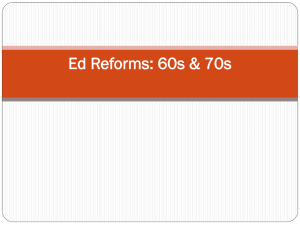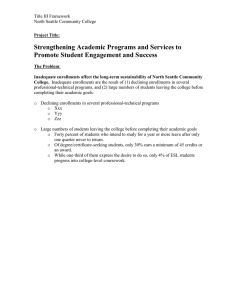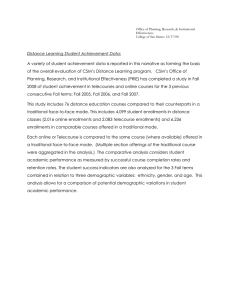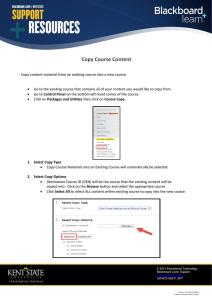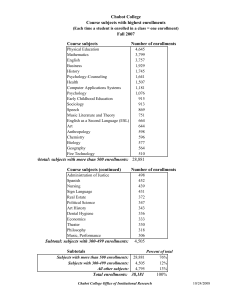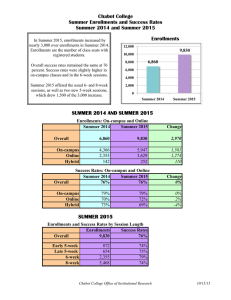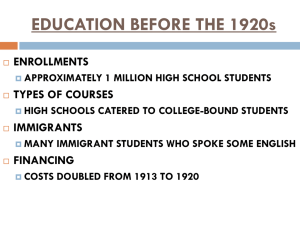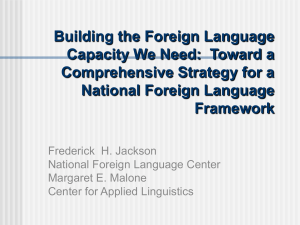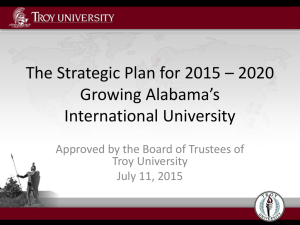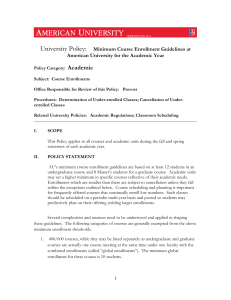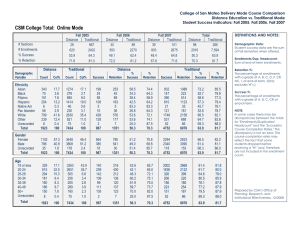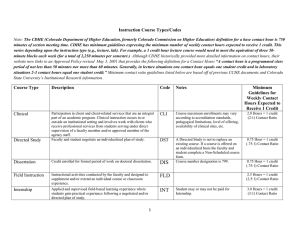Intermediate Group 5 – Day 1 Central Organizing Themes
advertisement
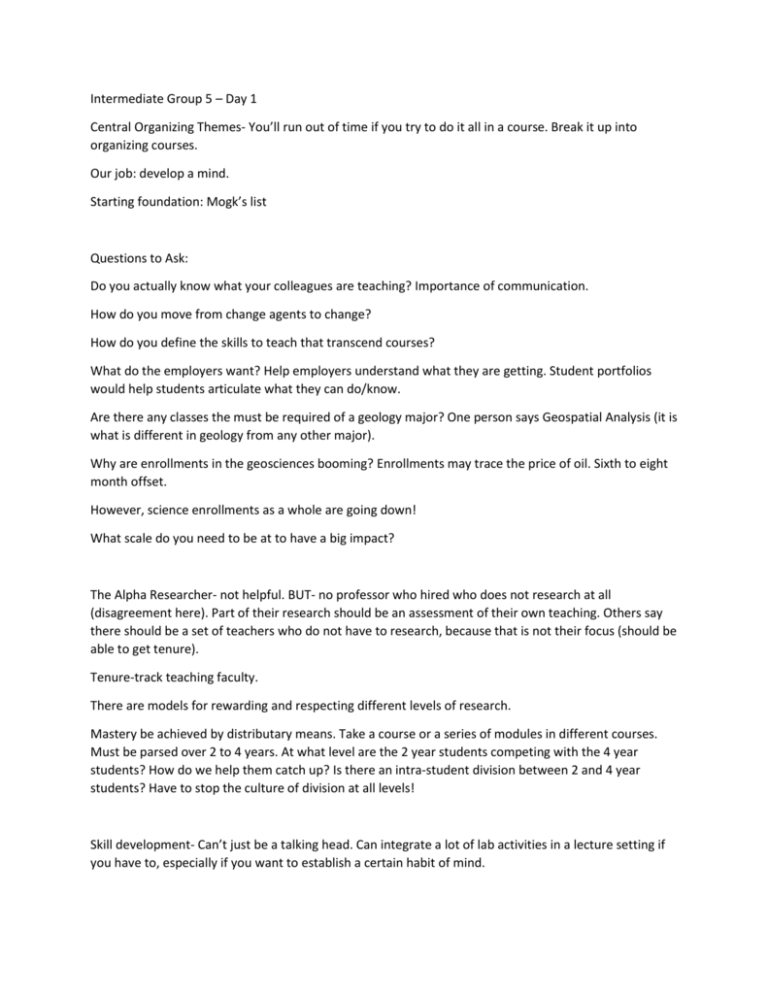
Intermediate Group 5 – Day 1 Central Organizing Themes- You’ll run out of time if you try to do it all in a course. Break it up into organizing courses. Our job: develop a mind. Starting foundation: Mogk’s list Questions to Ask: Do you actually know what your colleagues are teaching? Importance of communication. How do you move from change agents to change? How do you define the skills to teach that transcend courses? What do the employers want? Help employers understand what they are getting. Student portfolios would help students articulate what they can do/know. Are there any classes the must be required of a geology major? One person says Geospatial Analysis (it is what is different in geology from any other major). Why are enrollments in the geosciences booming? Enrollments may trace the price of oil. Sixth to eight month offset. However, science enrollments as a whole are going down! What scale do you need to be at to have a big impact? The Alpha Researcher- not helpful. BUT- no professor who hired who does not research at all (disagreement here). Part of their research should be an assessment of their own teaching. Others say there should be a set of teachers who do not have to research, because that is not their focus (should be able to get tenure). Tenure-track teaching faculty. There are models for rewarding and respecting different levels of research. Mastery be achieved by distributary means. Take a course or a series of modules in different courses. Must be parsed over 2 to 4 years. At what level are the 2 year students competing with the 4 year students? How do we help them catch up? Is there an intra-student division between 2 and 4 year students? Have to stop the culture of division at all levels! Skill development- Can’t just be a talking head. Can integrate a lot of lab activities in a lecture setting if you have to, especially if you want to establish a certain habit of mind. It is more important what you do with the content you incorporate than to have specific content specified. It’s ok if they don’t get some of these complicated concepts the first time around… may take three or four times. We are in a profession that allows for a personalization of the courses based on the instructors interests. Change: There has to be a culture of change. AGU/GSA symposium attendance is abysmal. We have to value excellence in education. College-level and provost-level. Push for competitive pay grade. Must have the backing of the geoscience group. Enrollment-based incentives may be at odds with the quality of the education. Quip: If students can pass with a C it means that half the content isn’t necessary. So we should eliminate that half of the content! Current approaches to assess student success are severely lacking- needs to be regulated and widely used. Provide incentives for people to build on what has already be done. NSF: message on innovation. Had a program called RARE. Department-level awards. This is an issue of dissemination. NSF needs to fund how to rapidly change culture and how people see the world. Need “accountants” for success, people who can quantify progressive change and properly assess this program. Tied to STEM redesign. Education Human Resource- we know what best practices are, is there a way to promote the propagation of evidence-based reforms at the departmental-level? Dissemination- IUSE. Public-Private partnerships to get funding. Educate, with a rigorous geoscience training, non-geological majors. Teachers, doctors, lawyers, politicians, voters… Relevance is key. Smaller schools may only represent a branch, where larger schools can encompasses more trees and branches. Have a state level summit on geo curriculum (like this meeting). Local societies could play a role.
